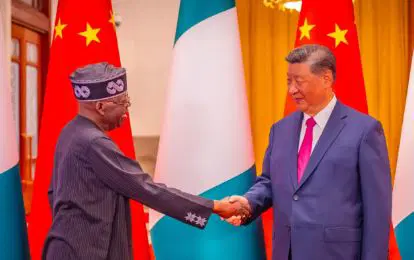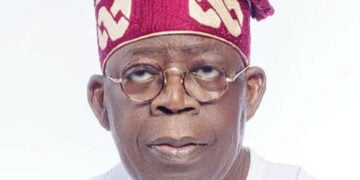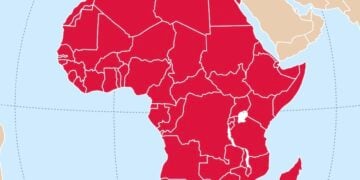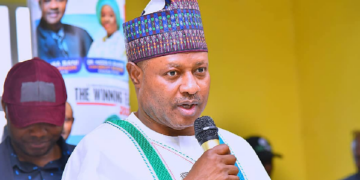Federal government has expressed willingness to reverse Nigeria’s trade deficit with China, which currently stands at a whopping $20 billion. Nigeria aims to be a net exporter to China in the next five years.
Director-General and Global Liaison for the Nigeria-China Strategic Partnership, Joseph Tegbe, made this known in his remarks during the opening ceremony of the China-Nigeria Infrastructure Cooperation Forum, China-Africa (Nigeria) 2024 and 18th China Engineering and Technology Exhibition held in Abuja on Thursday.
Tegbe said the trade volume between Nigeria and China was about $22 billion as of December 2023, with imports from China accounting for nearly $20 billion. He noted that the deficit had to be reversed because Brazil, China’s ninth-largest trading partner, exported $105 billion to China in 2023, while China’s exports to Brazil were valued at $59 billion.
Tegbe said, “As of today, China accounts for just 10 per cent of the world’s arable land but has successfully solved the food problems of over 1.2 billion people, accounting for 15 per cent of the world population. While Africa accounts for 60 per cent of the world’s arable land, we still face food challenges.
“This new dawn presents an opportunity to be part of this opportunity for food security resolution in Africa using advanced Chinese methods, techniques and technology, and we could see this exhibition ground.”
“It is our desired position as a nation for us in the next five years to push our trade volume between China and Nigeria higher than what it is today and for Nigeria to become a net exporter to China.”
He noted that the recent Forum on China-Africa Cooperation (FOCAC), which led to his appointment by President Bola Tinubu, marked the much-needed elevation of the trade and economic relationship between Nigeria and China.
Tegbe emphasised that Nigeria intends to increase its relations with China to a Comprehensive Strategic Partnership based on mutual trust, respect, shared ambition and collaborative efforts.
“Under this new evolving partnership, we are more determined to achieve success together with our Chinese counterparts to draw strength from one another’s virtues and to confront challenges together as one united force”, he added.
He said that industrialising Nigeria could lead to industrialising 25 per cent of Africa, adding that an economically viable Nigeria would lead to a prosperous Africa.
Chinese Ambassador to Nigeria, Yu Dunhai, described Nigeria as China’s most significant engineering contract market, one of its largest trading partners and a significant investment destination in Africa.
The Chinese envoy said the exhibition was organised to implement the outcomes of the Beijing summit and the consensus reached between Chinese President Xi Jinping and President Bola Tinubu during their recent meeting in the Chinese capital.
The envoy said: “I am pleased to see that this exhibition brings together men, outstanding entrepreneurs and innovations in various fields, including engineering, contracting, advanced manufacturing, biotechnology, energy conservation, environmental protection and green energy.
“Through the exhibition and exchanges, we believe it can play an important role in further promoting Nigeria’s industrialisation and agricultural modernisation process and facilitate in-depth cooperation between our two countries in more fields.”
Minister of Transportation Senator Said Alkali said the exhibition was significant because it emphasises the need to improve infrastructural development, one of the cardinal points of President Bola Tinubu’s Renewed Hope Agenda.





